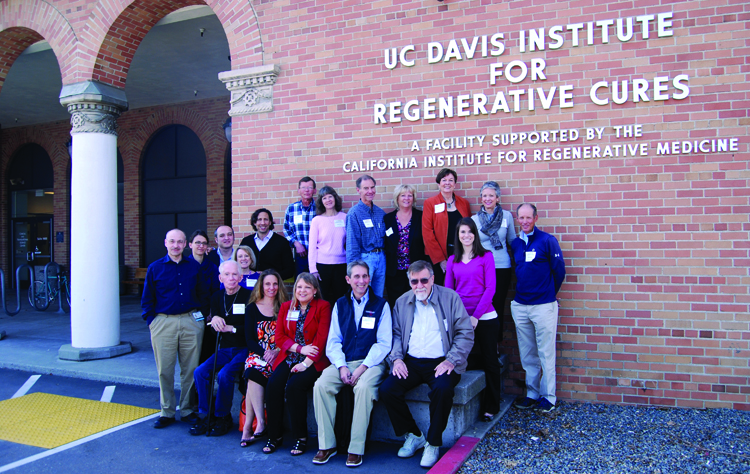By Kevin McCormack – Link to article – CIRM
At the California Institute for Regenerative Medicine (CIRM) we are fortunate in having enough money to fund the most promising research to be tested in a clinical trial. Those are expensive projects, often costing tens of millions of dollars. But sometimes the projects that come to our Board start out years before in much more humble circumstances, raising money through patient advocates, tapping into the commitment and ingenuity of those affected by a disease, to help advance the search for a treatment.
That was definitely the case with a program the CIRM Board voted to approve yesterday, investing more than $11 million dollars to fund a Phase 2 clinical trial testing a cell therapy for dysphagia. That’s a debilitating condition that affects many people treated for head and neck cancer.
Patients with head and neck cancer often undergo surgery and/or radiation to remove the tumors. As a result, they may develop problems swallowing and this can lead to serious complications such as malnutrition, dehydration, social isolation, or a dependence on using a feeding tube. Patients may also inhale food or liquids into their lungs causing infections, pneumonia and death. The only effective therapy is a total laryngectomy where the larynx or voice box is removed, leaving the person unable to speak.
Dr. Peter Belafsky and his team at the University of California at Davis are developing a therapeutic approach using Autologous Muscle Derived Progenitor Cells (AMDC), cells derived from a biopsy of the patient’s own muscle, elsewhere in the body. Those AMDCs are injected into the tongue of the patient, where they fuse with existing muscle fibers to increase tongue strength and ability to swallow.
The $11,015,936 that Dr. Belafsky is getting from CIRM will enable them to test this approach in patients. But without grass roots support the program might never have made it this far.
Ed Steger is a long-term survivor of head and neck cancer, he’s also the President of the National Foundation of Swallowing Disorders (NFOSD). In 2007, after being treated for his cancer, Ed developed a severe swallowing disorder. It helped motivate him to push for better treatment options.
In 2013, a dozen swallowing disorder patients visited UC Davis to learn how stem cells might help people with dysphagia. (You can read about that visit here). Ed says: “We were beyond thrilled with the possibilities and drawing on patients and other UCD contacts our foundation raised enough funds to support a small UCD clinical trial under the guidance of Dr. Belafsky in mouse models that demonstrated these possibilities.”
A few years later that small funding by patients and their family members grew into a well-funded Phase I/II human clinical trial. Ed says the data that trial produced is helping advance the search for treatments.
“Skipping forward to the present, this has now blossomed into an additional $11 million grant, from CIRM, to continue the work that could be a game changer for millions of Americans who suffer annually from oral phase dysphagia. My hat is off to all those that have made this possible… the donors, patient advocates, and the dedicated committed researchers and physicians who are performing this promising and innovative research.”
Our hats are off to them too. Their efforts are making what once might have seemed impossible, a real possibility.

